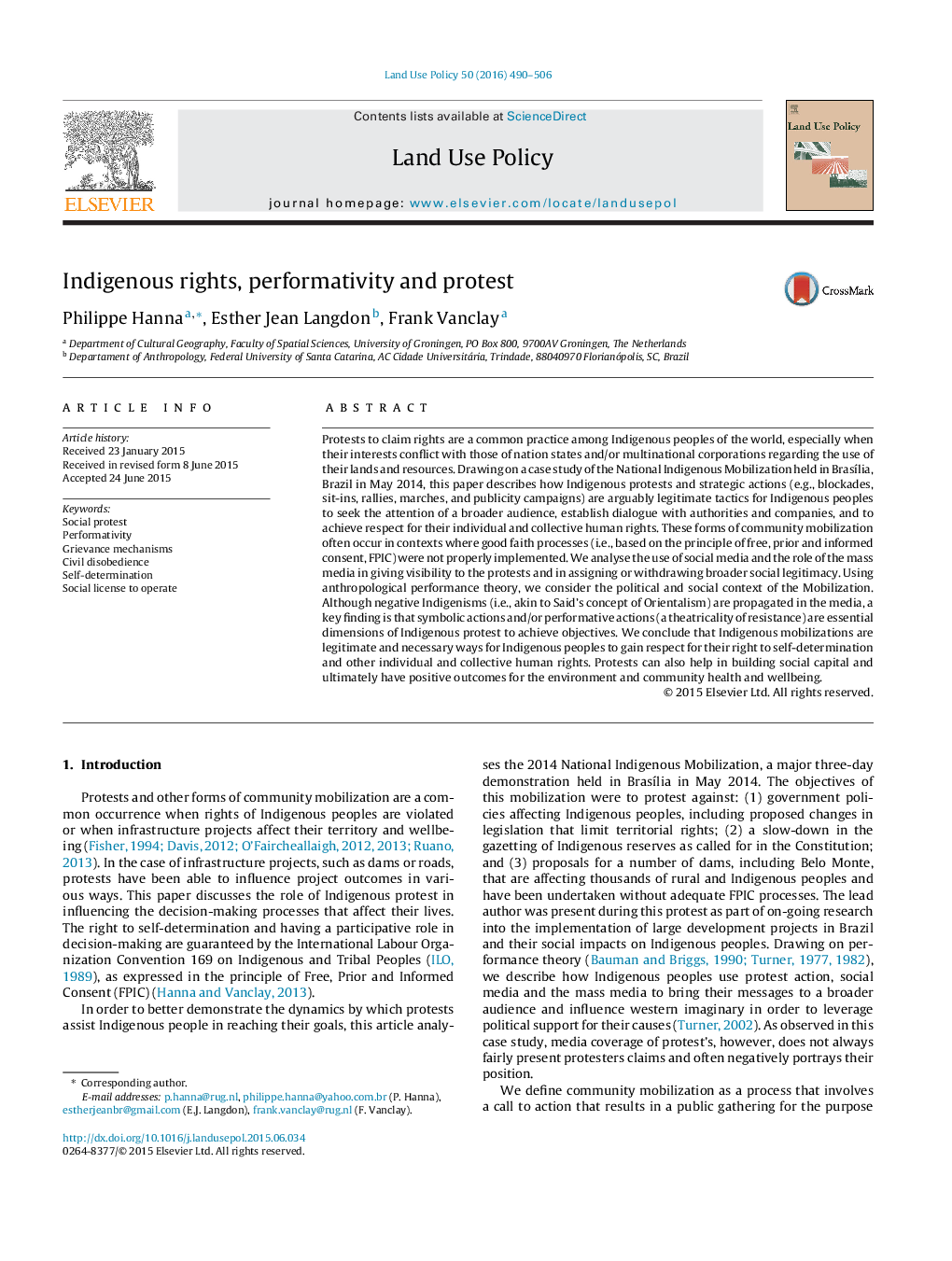| کد مقاله | کد نشریه | سال انتشار | مقاله انگلیسی | نسخه تمام متن |
|---|---|---|---|---|
| 6547701 | 160095 | 2016 | 17 صفحه PDF | دانلود رایگان |
عنوان انگلیسی مقاله ISI
Indigenous rights, performativity and protest
ترجمه فارسی عنوان
حقوق بومی، تئوری و اعتراض
دانلود مقاله + سفارش ترجمه
دانلود مقاله ISI انگلیسی
رایگان برای ایرانیان
کلمات کلیدی
اعتراض اجتماعی، کارآفرینی، مکانیسم شکایت، نافرمانی مدنی، تعیین خود، مجوز اجتماعی برای کار،
موضوعات مرتبط
علوم زیستی و بیوفناوری
علوم کشاورزی و بیولوژیک
جنگلداری
چکیده انگلیسی
Protests to claim rights are a common practice among Indigenous peoples of the world, especially when their interests conflict with those of nation states and/or multinational corporations regarding the use of their lands and resources. Drawing on a case study of the National Indigenous Mobilization held in BrasÃlia, Brazil in May 2014, this paper describes how Indigenous protests and strategic actions (e.g., blockades, sit-ins, rallies, marches, and publicity campaigns) are arguably legitimate tactics for Indigenous peoples to seek the attention of a broader audience, establish dialogue with authorities and companies, and to achieve respect for their individual and collective human rights. These forms of community mobilization often occur in contexts where good faith processes (i.e., based on the principle of free, prior and informed consent, FPIC) were not properly implemented. We analyse the use of social media and the role of the mass media in giving visibility to the protests and in assigning or withdrawing broader social legitimacy. Using anthropological performance theory, we consider the political and social context of the Mobilization. Although negative Indigenisms (i.e., akin to Said's concept of Orientalism) are propagated in the media, a key finding is that symbolic actions and/or performative actions (a theatricality of resistance) are essential dimensions of Indigenous protest to achieve objectives. We conclude that Indigenous mobilizations are legitimate and necessary ways for Indigenous peoples to gain respect for their right to self-determination and other individual and collective human rights. Protests can also help in building social capital and ultimately have positive outcomes for the environment and community health and wellbeing.
ناشر
Database: Elsevier - ScienceDirect (ساینس دایرکت)
Journal: Land Use Policy - Volume 50, January 2016, Pages 490-506
Journal: Land Use Policy - Volume 50, January 2016, Pages 490-506
نویسندگان
Philippe Hanna, Esther Jean Langdon, Frank Vanclay,
